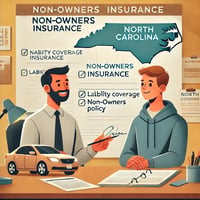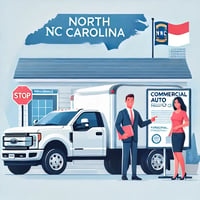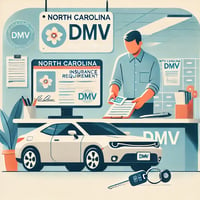Do You Need Insurance on a Utility Trailer in North Carolina?
 Utility trailers can be incredibly useful, whether you're hauling equipment for a project or bringing along extra gear for an adventure. But many North Carolina residents wonder, “Do I need insurance on my utility trailer?” While insurance may not always be legally required, certain protections can help save you from unexpected costs. This article explains North Carolina’s requirements, types of trailer insurance, and when it might be wise to consider coverage for your trailer.
Utility trailers can be incredibly useful, whether you're hauling equipment for a project or bringing along extra gear for an adventure. But many North Carolina residents wonder, “Do I need insurance on my utility trailer?” While insurance may not always be legally required, certain protections can help save you from unexpected costs. This article explains North Carolina’s requirements, types of trailer insurance, and when it might be wise to consider coverage for your trailer.
Is Trailer Insurance Required in North Carolina?
In North Carolina, you’re generally not required to carry separate insurance for a utility trailer used for personal purposes. However, liability coverage from your auto insurance typically extends to the trailer while it’s attached to your vehicle. This means if your trailer causes damage or injury while on the road, your car insurance covers it up to the liability limits on your policy.
Key Points About Liability Coverage
- Towing Vehicle Coverage: Liability insurance from your towing vehicle extends to the trailer for third-party injuries or damages.
- Limitations: This does not cover any physical damage to your trailer, nor does it protect against theft or vandalism.
Additional Insurance Options for Utility Trailers
While basic liability is often enough to meet state requirements, many trailer owners choose extra coverage to protect against damage or loss. Here are some popular options:
1. Physical Damage Coverage
Physical damage coverage can be essential if you want to protect the trailer itself. This coverage helps pay for repairs or replacement if your trailer is damaged in an accident, stolen, or impacted by other unexpected events.
- Comprehensive: Covers non-collision incidents like theft, vandalism, or weather damage.
- Collision: Covers repairs to your trailer if it’s damaged in a road accident, regardless of who’s at fault.
2. Cargo and Contents Coverage
If you transport valuable items, such as tools or recreational gear, this optional coverage can be helpful. Cargo coverage protects the items stored inside your trailer if they’re lost or damaged during a trip.
3. Commercial Use Coverage
For trailers used primarily for business, such as landscaping or construction, you’ll likely need commercial trailer insurance. Commercial policies typically offer higher liability limits and additional protections for equipment used in business operations.
Why Additional Coverage Could Be Beneficial
Even though North Carolina doesn’t require standalone trailer insurance, there are several reasons why many owners choose it. Physical damage and theft coverage can save you from paying for costly repairs or replacements. Here are a few scenarios where extra coverage might be valuable:
- Protecting Against Costly Repairs: If your trailer is damaged in an accident or by harsh weather, collision and comprehensive coverage help offset repair or replacement costs.
- Covering Valuable Items: If you often carry valuable equipment, tools, or recreational items, cargo coverage will protect these assets in case of an accident or theft.
- Peace of Mind: Accidents happen, and without the right coverage, you could face significant out-of-pocket costs. Coverage for theft, weather damage, and vandalism offers extra security.
FAQs
Does my personal auto insurance cover my trailer?
Yes, but only for liability. In North Carolina, the liability coverage on your towing vehicle generally extends to the trailer when it’s attached. However, this won’t cover the trailer itself from damages—only any harm caused to others or their property.
Can I get insurance that covers just my trailer?
Yes, many insurers offer standalone trailer policies. These policies cover physical damage to the trailer and can include options like comprehensive, collision, and cargo coverage. Speak with your insurance agent to learn about options for insuring your trailer separately.
Do I need commercial trailer insurance if I use my trailer for work?
Yes, if you use your trailer for business purposes, a personal auto policy will not provide adequate coverage. You’ll need a commercial policy, which includes higher liability limits and other protections tailored for business use.
Conclusion
While North Carolina doesn’t require separate insurance for utility trailers, many trailer owners find value in additional coverage. Extra protection can save you from costly repairs or losses if something happens to your trailer. Whether you use your trailer for personal hauling or business, consider what coverage will best protect your investment and give you peace of mind on the road.
Want to explore coverage for your trailer? Contact us today to discuss the best options for your utility trailer in North Carolina!



